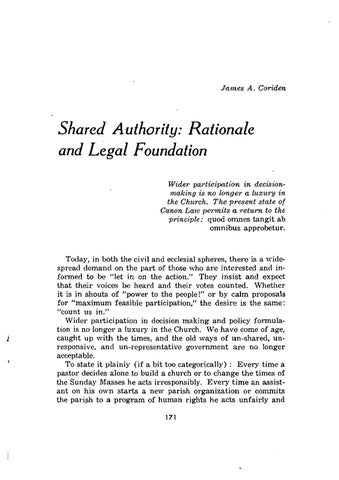James A. Coriden
Shared Authority: Rationale and Legal F oundation Wider pa>¡ticipation in decisionmaking is no longer a luxury in the Church. The present state of Canon Law permits a return to the principle: quod omnes tangit ab omnibus approbetur.
i
Today, in both the civil and ecclesial spheres, there is a widespread demand on the part of those who are interested and info>med to be "let in on the action." They insist and expect that their voices be heard and their votes counted. Whether it is in shouts of "power to the people!" or by calm proposais for "maximum feasible participation," the desire is the same: "count us in." Wider participation in decision making and policy formulation is no longer a luxury in the Church. We have come of age, caught up with the times, and the old ways of un-shared, unresponsive, and un-representative government are no longer acceptable. To state it plainly (if a bit too categorically) : Every timea pastor decides alone to build a church or to change the times of the Sunday Masses he acts irresponsibly. Every time an assistant on his own statts a new parish organization or commits the pari~h to a program of human rights he acts unfairly and 171
